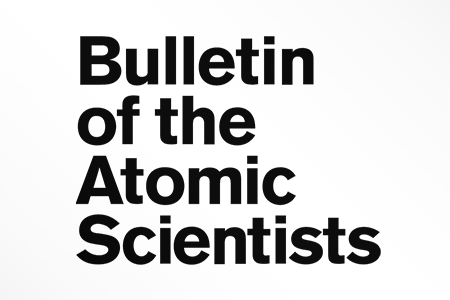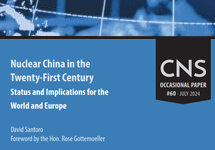
Watch a seminar video with Dr. Christopher Lawrence.

Raymond Wang’s research examines the strategies and tools rising powers use to shape international order.

Hanna Notte represented CNS at the 2025 Munich Security Conference, which took place from 14-16 February.

Scholars and policy analysts have debated the health of the global nuclear order since the beginning of Russia’s February 2022 full-scale invasion of Ukraine.

Nuclear-powered cargo ships are a particularly bad idea in an era of international terrorism and piracy.

The end of nuclear weapons testing is a significant nonproliferation success, yet concerns about its resumption persist.

Concerns over China’s rapid nuclear arsenal expansion have prompted global efforts to assess its implications, especially for NATO’s security.